
Pleistoce A prehistoric shortfaced bear (Arctodus sinus) approaching
Megatherium (/ m ɛ ɡ ə ˈ θ ɪər i ə m / meg-ə-THEER-ee-əm; from Greek méga 'great' + theríon (θηρίον) 'beast') is an extinct genus of ground sloths endemic to South America that lived from the Early Pliocene through the end of the Pleistocene. It is best known for the elephant-sized type species M. americanum, sometimes known as the giant ground sloth, or the megathere, native.
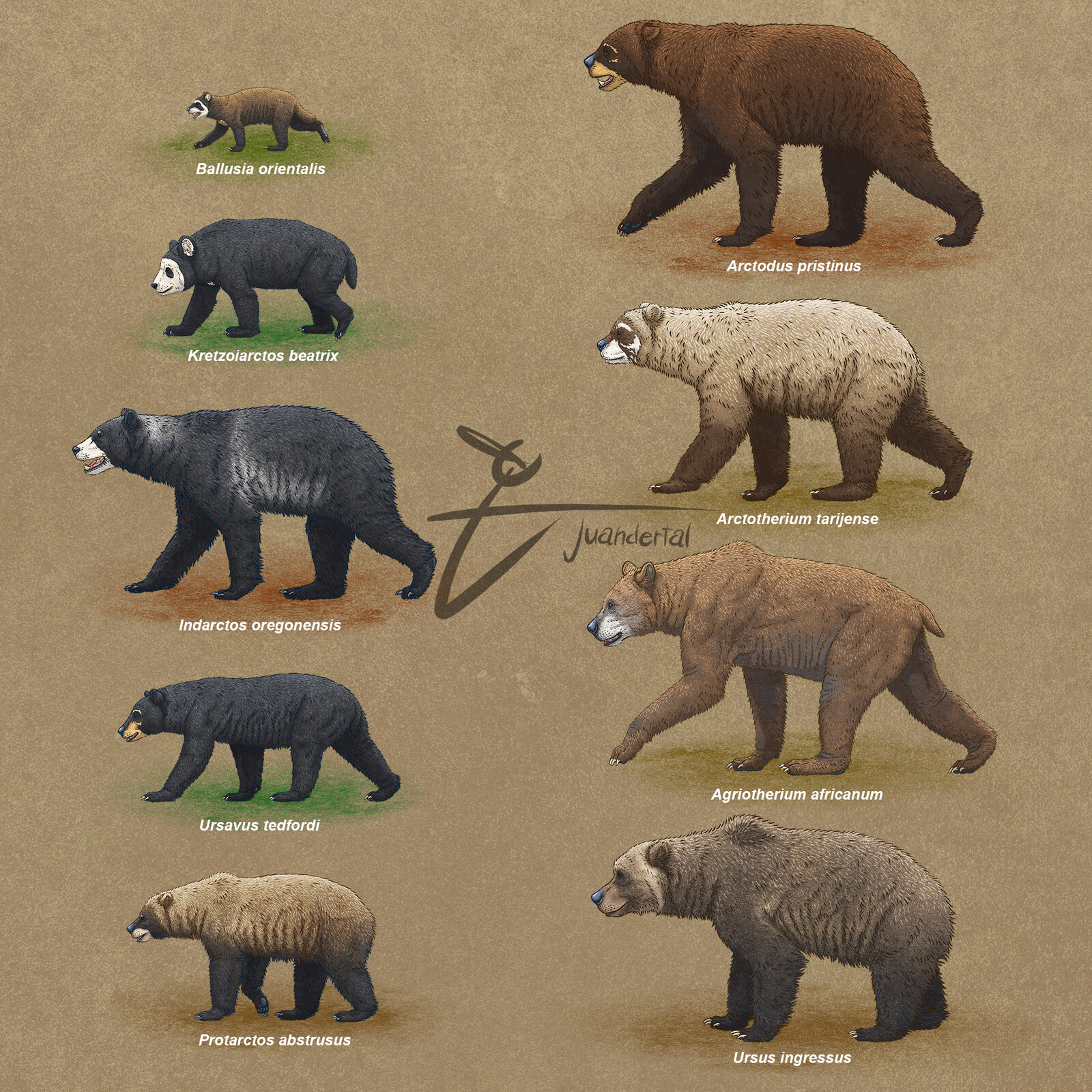
Juandertal Bears, extinct
The largest ever primate Gigantopithecus blacki went extinct when other Asian great apes were thriving, and its demise has long been a mystery A massive regional study of 22 caves in southern.

Extinct Animal of the Week The Biggest Bear
Jan. 10, 2024, 11:00 a.m. ET. Standing nearly as tall as a basketball hoop and weighing as much as a grizzly bear, Gigantopithecus blacki was the greatest ape to ever live. For more than a million.

Natural History Museum Signage Part I on RISD Portfolios Ancient
Earth's largest ape went extinct 100,000 years earlier than once thought. The demise of the giant ape Gigantopithecus blacki. Nature. Published online January 10, 2024. doi: 10.1038/s41586.

The South American Giant Short Faced Bear(Arctotherium angustidens
This species is also extinct today, but in the years of decline of G. blacki was able to adapt its size and diet to more variable conditions in which, sometimes, it was necessary to travel a certain distance to get food or find water that thousands of years earlier had been abundant everywhere. The giant ape was not as mobile and had to settle, according to tooth analysis, for lower quality.

Relative sizes of the extinct shortfaced bear, polar bear, and brown
Photo: Mike Stark Unearthing the Story of North America's Lost Giant Bear A new book digs through dark caves and historical documents to tell the story of the now-extinct giant short-faced bear, which disappeared around the time of the mammoths. Book Excerpts April 15, 2022 - by Mike Stark

5 Prehistoric Bear Species That Dwarf Modern Bears OutdoorHub
The findings show G.blacki went extinct between 295,000 and 215,000 years ago, much earlier than previously assumed. Before this time, G. blacki flourished in a rich and diverse forest.

How Big Was This ShortFaced Bear? North American Bear CenterNorth
7 Facts About an Extinct Giant Bear You've Probably Never Heard Of By Jake Hofer | June 16, 2017 Meet the Short-Faced Bear, the extinct 2,ooo-pound mammal that could chase down wild horses like a cheetah. Throughout earth's long history, some animals have flourished to this day, while others have been phased out for various reasons.
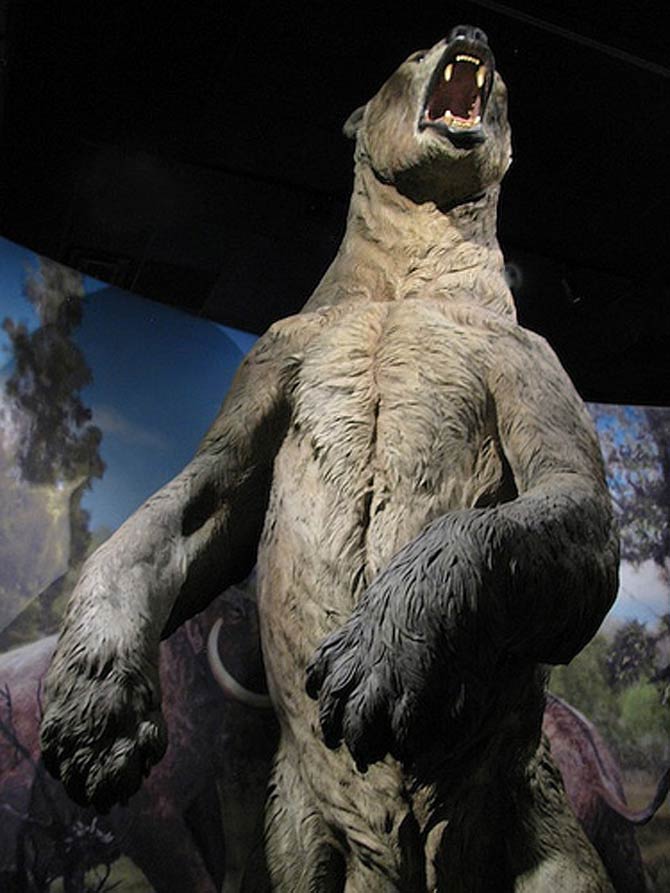
Largest Prehistoric Bear
Giants once roamed the karst plains of southern China, three-metre tall apes weighing in at 250 kilograms. These very distant human ancestors - Gigantopithcus blacki - went extinct before humans.
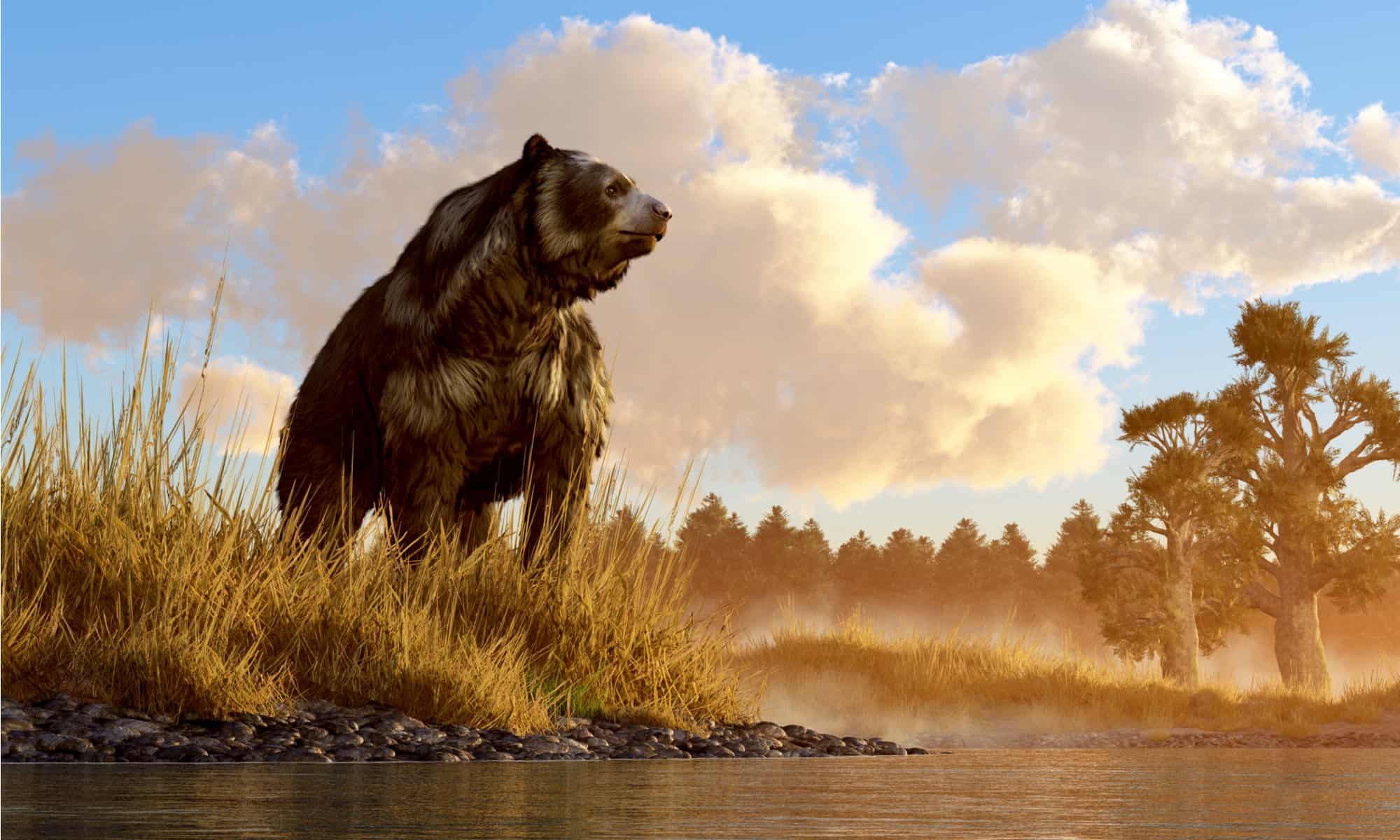
Why Did Cave Bears Go Extinct? AZ Animals
Garcia/Joannes-Boyau (Southern Cross University) The largest known primate went extinct between 295,000 and 215,000 years ago, probably driven by its inability to adapt its food preferences amid a.

ShukerNature CATERPILLAR BEARS, BULLDOG BEARS, AND GOD BEARS URSINE
The Tremarctinae or short-faced bears is a subfamily of Ursidae that contains one living representative, the spectacled bear ( Tremarctos ornatus) of South America, and several extinct species from four genera: the Florida spectacled bear ( Tremarctos floridanus ), the North American giant short-faced bears Arctodus ( A. pristinus and A. simus ).
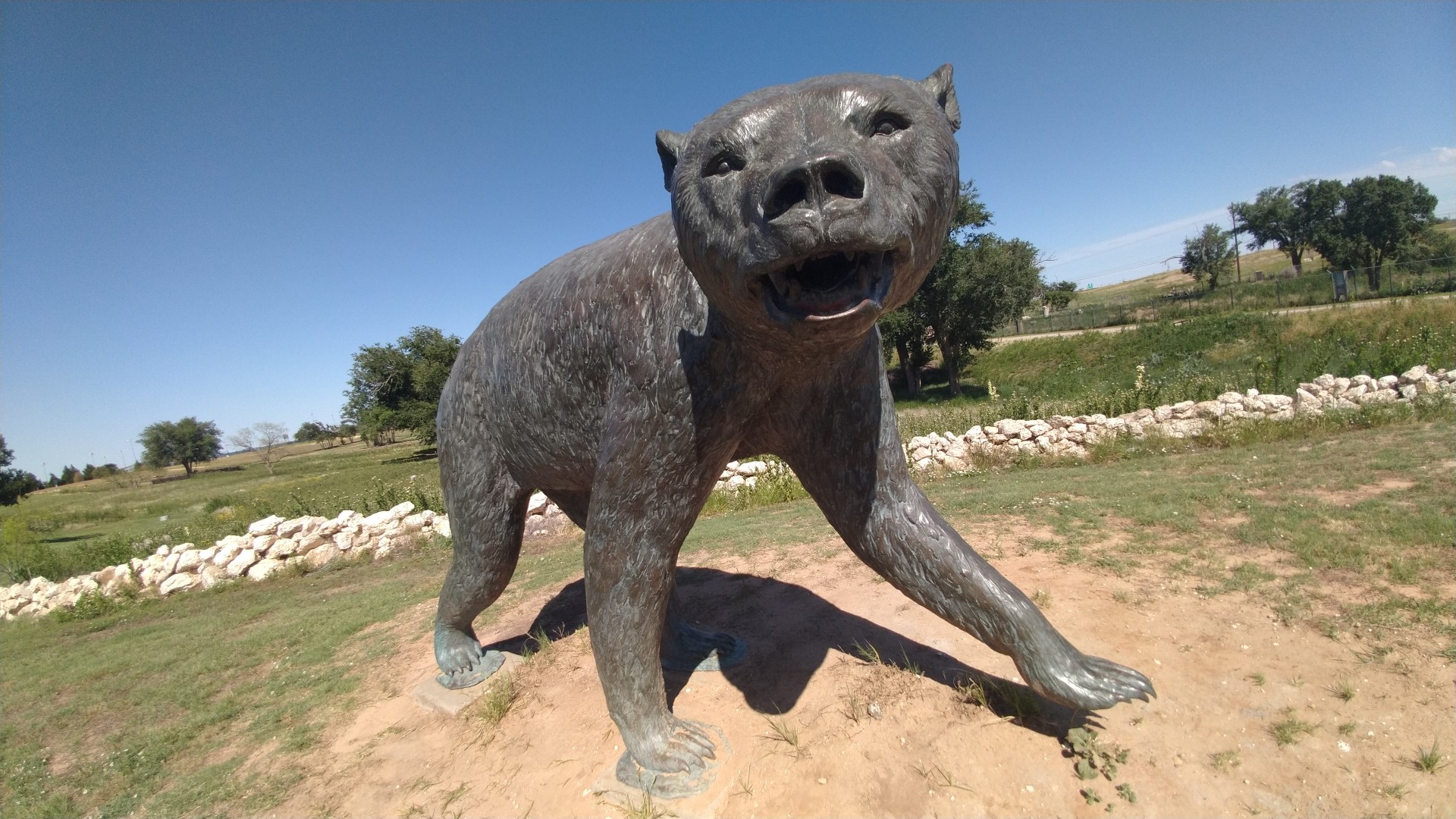
Unearthing the Story of North America’s Lost Giant Bear • The Revelator
The South American giant short-faced bear roamed its namesake continent about 500,000 to 2 million years ago and would have been the largest and most powerful meat-eater on land at the time,.

Giant Bears, historic and ancient Over 12 feet tall Monsters of the
CNN —. The largest ape on record stood almost 10 feet tall (3 meters) and weighed nearly twice as much as a gorilla. Why and when the legendary colossus — which has captivated the popular.
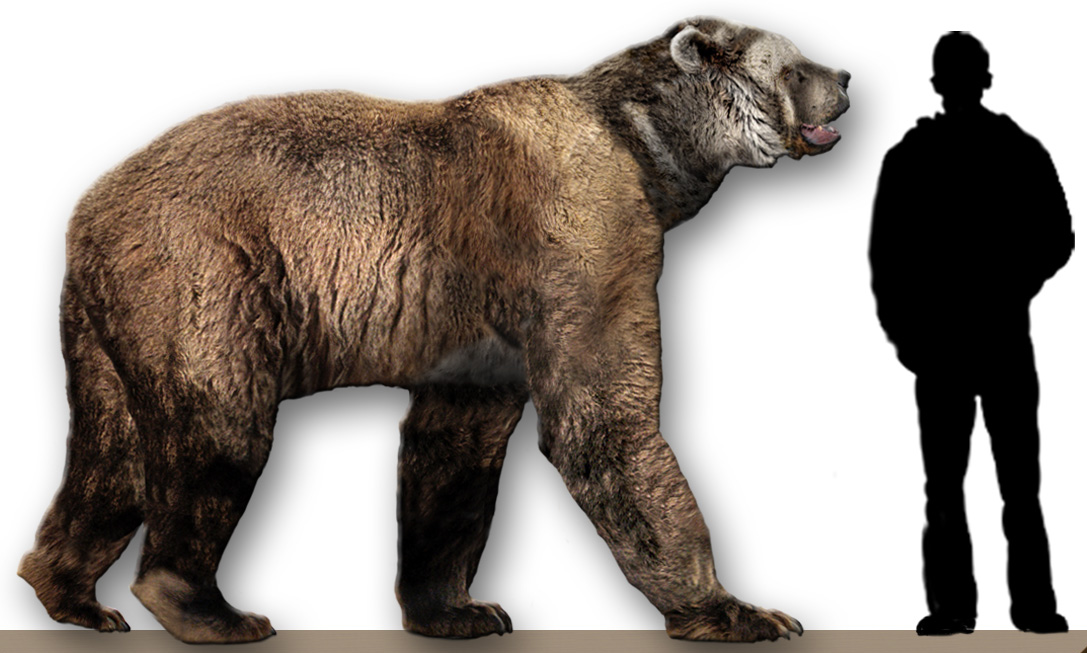
5 Prehistoric Bear Species That Dwarf Modern Bears OutdoorHub
Arctodus is an extinct genus of short-faced bear that inhabited North America during the Pleistocene (~2.5 Mya until 12,800 years ago). There are two recognized species: the lesser short-faced bear ( Arctodus pristinus) and the giant short-faced bear ( Arctodus simus ).

Pin by はんまーへっど on Prehistoric Animals Prehistoric animals, Ancient
The Giant Short-Faced Bear Arctodus simus The Fastest Running Bear That Ever Lived Also called the bulldog bear, the giant short-faced bear (Arctodus simus) was undoubtedly the fastest running bear that ever lived. Rangier… Read More » How Big Was This Short-Faced Bear? On 4 feet, he was 5½ to 6 feet at the shoulders.

Prehistoric taxonomy Short faced bear (“Arctodus simus”) 1897 Cave
The Arctodus, also known as the Giant Short-Faced Bear, is a now-extinct species that once roamed North America during the Pleistocene epoch. Its fascinating characteristics and the mysteries surrounding its extinction have intrigued researchers for decades. In this article, we will delve into the world of Arctodus and explore its physical.